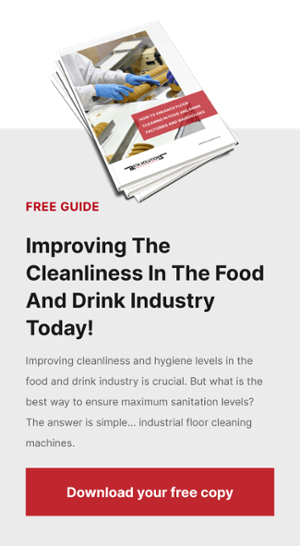
The importance of food hygiene within the fruit and vegetable industry is paramount. Fresh products tend to have a low shelf life, so if they’re not looked after properly or handled correctly, they’re going to quickly deteriorate and won’t be fit for human consumption. That’ll result in increased wastage and your business operating at lower profitability.
With that in mind, all producers have a huge part to play in ensuring that products are in perfect condition when being passed onto fruit and veg wholesalers. If they’re passed on in poor condition to start with, the chances of them staying fresh and making the store shelves are very slim. By adhering to food hygiene best practices, producers ensure that the quality of their products is always high.
But what are food hygiene best practices? And how can fruit and vegetable producers always make sure that they’re abiding by them? Don’t worry if you’re not sure, this post will outline everything you need to know and will include actionable tips for you to implement within your business.
We’ll cover:
- The Importance of Food Hygiene For Fruit and Vegetable Producers
- Establish a Regular Cleaning Process
- Avoid Cross-Contamination At All Costs
- Comply With Food Hygiene Legislation and Regulations
The Importance of Food Hygiene For Fruit and Vegetable Producers
When shoppers go to the supermarket, what’s the one thing they want to see more than any other? Fresh fruit and vegetables. These products are famous for not having the longest shelf life as it stands, but if they’re only “in date” for a very short while, people will be put off buying them and will look for the better-dated products.
Food hygiene best standards ensure that supermarkets and other stores get the maximum out of their products. Fruit and vegetable producers have to work quickly and efficiently to ensure that all the right measures are taken so products are always in the best condition. If they don’t adhere to the best practices, they run the risk of cross-contamination within their goods.

Think about it, fruit and vegetables are grown outdoors. So, they can’t just go straight from being picked into stores, can they? They need to be tended to appropriately so that they’re cleaned, packaged and stored correctly to prolong their life cycle. If the proper steps aren’t taken, harmful bacteria may start to spread and cause threats to consumers – and your workforce too!
Should the right checks not be in place and contaminated products start to slip through the net, it could mean a world of bother for your business. Should somebody eat products that are contaminated, they can fall seriously ill. Not only will this have repercussions on the supermarket or store they bought it from, but ultimately, the source of the products too.
Compensation and legal fees for cases like this can be sky-high. Contaminated products risk people’s lives – FACT. Plus, the last thing you want to tarnish your reputation is the noise that you’re producing unfit products for human consumption and that you’re unreliable, isn’t it? Poor reputations are hard to turn around once the word is out there.
Establish a Regular Cleaning Process
Establishing a regular industrial cleaning process can seriously increase your hygiene levels. When working with dirty products in the warehouse, it’s only natural that mess builds up quickly. Combine that with operational dirt and debris and you’ll start to see that not only are your hygiene levels decreasing, but you’re increasing the chance of accidents in the workplace.
Cleaning workstations should be done regularly. A lot of people are quick to put cleaning on the back burner as it’s laborious and time-consuming. However, if you’re guilty of this, you’re not adhering to food hygiene best practices. Keeping workstations clean is important to avoid any cross-contamination – we can’t stress how important it is to ensure they’re spotless.

Whether that involves somebody running an industrial floor cleaner around the warehouse floor between shifts or at the end of the day, or even hiring a third-party to come into your premises monthly and give them a good gutting – there are various ways that businesses ensure their warehouses are as clean as possible. It’s all about finding the right methods that work for your company.
Establishing a regular cleaning process best positions your business for success throughout your whole operations. Think about it, if the floor is spotlessly clean, it allows team members to go about their daily tasks without worrying that they’re going to fall over and hurt themselves. In result, your productivity levels will soar and team morale will be higher – both of these combining to produce a more well-oiled machine.
Avoid Cross-Contamination At All Costs
As we’ve mentioned, cross-contamination is a serious problem for fruit and vegetable producers. If products become contaminated, then they’ll be ruined and will need to be disposed of. Contamination can spread quickly and can ruin your whole product range if you’re not careful. Having to dispose of your whole product range will be a waste of time, money and months of hard work.
Contamination can start from a number of scenarios. A couple of the most common ways are failing to keep your workplace as clean as possible and the mishandling of goods. As different fruit and vegetable products have varying shelf lives and storage needs, if you fail to handle or store them properly, the freshness of your products can quickly deteriorate.
Warehouses are particularly messy places, aren’t they? With the combination of operational dirt and debris, mess from the products themselves and human error spillages, there’s a lot of potential for a messy working environment. If the dirt isn’t cleaned up regularly, the thick build-up can start to spread harmful bacteria onto your products – which is the last thing you want.
Once this harmful bacteria starts spreading, it’s hard to keep track of which products it’s contaminated and which ones are fresh. Especially with food products, are you willing to take the risk of sending out harmful products and damaging your reputation? We’d strongly advise against it.
Cross-contamination is one of the biggest problems that fruit and vegetable producers face. The importance of food hygiene within this industry is imperative to ensure the health of consumers and customers is always prioritised – and NEVER compromised.
Comply With Food Hygiene Legislation and Regulations
Food hygiene legislation and regulations are there for a plethora of reasons. Whether it’s to keep consumers safe or your team members when handling food products, they must be adhered to if you’re going to operate safely and efficiently. If you’re trying to cut corners when it comes to food hygiene, you could be toying with the health and wellbeing of your customers.
Not adhering to food hygiene legislation and regulations can be bad news for your business. You’ll be found out quickly by your customers, third-party hygiene inspectors and the superiors within your business. As a hygiene manager, we bet that’s a pretty awkward situation to find yourself in – being quizzed for answers as to why you’re not doing your job properly and being responsible for any bad press and possible downtime.

Sloppy standards make for poor products. And that’s only the start of it. This can have a huge knock-on effect throughout your business and may result in loss of business, poor reputation and being well-known for all the wrong reasons. Who wants to be known as the business with poor hygiene standards? We can’t see many customers wanting to associate themselves with businesses like that.
Establish an Industrial Cleaning Routine With the Right Equipment
As we’ve mentioned, establishing an industrial cleaning process is crucial to upholding high food hygiene standards. But you need the right equipment to ensure that it’s as regimented as it can be. Trying to adequately clean your workplace without the right equipment can prove to be a near-impossible task. Plus, it can end up taking you an age, which means for longer downtime periods.
Introducing an industrial floor cleaning machine into your process can speed up proceedings, plus, improve the thoroughness of your cleaning routine. Don’t worry if you’re not sure how these machines can benefit your business – that’s where we come in. We’ve produced a free guide that highlights everything you need to know about industrial floor cleaning machines.
To find out more about the right one for your business and the benefits that it can bring to your operations, grab your copy today!












